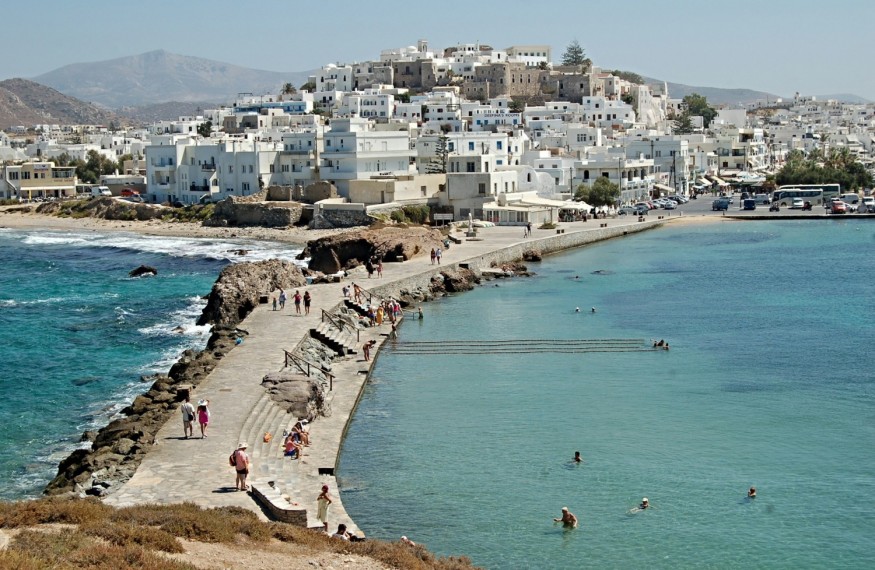As Greece welcomes record tourists, its water crisis deepens. Reservoirs on islands like Naxos have dried up, and seawater contamination damages crops. Authorities are scrambling to deploy desalination units to address severe water shortages.

Greece Battles Severe Summer Drought
Greece's bustling tourist season is under threat as the nation faces an escalating water crisis. In islands like Naxos and Karpathos, key water reservoirs have run dry, significantly impacting local agriculture and straining resources as the country prepares for an influx of visitors.
The situation has been exacerbated by months of minimal rainfall, affecting areas that are typically bustling with tourists seeking Greece's renowned beaches and historic sites.
In Naxos, previously full reservoirs are now mud pits, home only to local wildlife, while seawater infiltration has compromised the freshwater supply, damaging vital potato crops.
The situation mirrors the challenges in Karpathos, where water usage restrictions are in place to manage the scarcity, focusing primarily on limiting the filling of swimming pools.
Authorities in Greece are urgently turning to technological solutions like desalination to alleviate the water shortage. Several islands are adopting portable desalination units to convert seawater into a drinkable resource for residents and tourists.
However, these measures are still insufficient for the agricultural sector, which continues to suffer from saline contamination in irrigation systems.
This comes when Greece is already facing some of the wider causes attributed to climate change. Higher temperatures and more frequent incidents of wildfires also threaten the sustainability of its tourism industry, which has otherwise acted as the country's economic backbone.
According to experts, including Andrea Toreti from Copernicus Emergency Management Service, it is a shift from emergency responses to proactive prevention and preparedness against some of these recurring environmental challenges.
Related Article: Big Change in Greece as Workdays Extend to Six a Week
Athens Responds to Severe Heatwave
With a severe heat wave hitting Greece, emergency measures are being implemented to save residents and tourists from soaring temperatures.
Athens has allowed a line of security protocols with temperatures soaring upwards of 50 degrees Celsius, which includes opening air-conditioned public spaces and increasing medical support to help those most vulnerable to the extreme conditions.
In addition, the city has increased fire patrols over major parks and forests to help protect against wildfires that have spread because of this dry weather. The city of Athens has also promoted a mobile app called Extrema to cope with the problem further.
It provides real-time temperature updates and health advisories, pinpoints the closest cooling spots- whether a fountain or shaded park-and advises on the best routes through the city to avoid the worst of the heat.
Apart from that, the Extrema app does a lot to update locals about the local air quality, which also helps one make informed decisions against health risks.
These are proactive steps the city is taking amidst a more general effort to manage the impact of any heat wave to ensure the safety of locals and millions of tourists who visit Greece annually.
With temperatures set to soar over the coming days, the country remains gripped by anxiety as the government continues to respond with resources and technology to mitigate the impact of such an unprecedented heatwave.
This article is copyrighted by Travelers Today, the travel news leader




